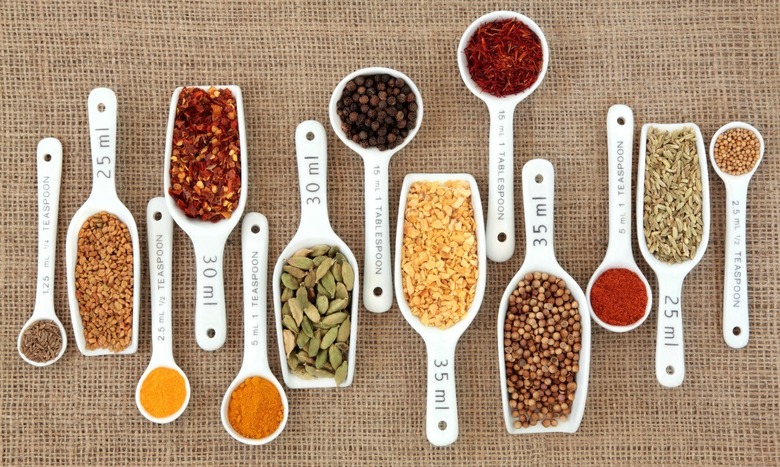How To Cook The Right Portions
We've all been there: You make a great penne pasta for Sunday night dinner with enough servings to last you through lunch on Wednesday. Instead of saving the extra portions as planned, you eat the whole thing while it's still warm. This kind of overeating can lead to increased blood sugar, weight gain and long-term problems like obesity. Food portions have doubled and even tripled at many restaurants in the last decade, and those sizes can easily influence the amount of food people cook for themselves at home.
Click here for the 10 Healthy Eating Habits to Pick Up slideshow.
Portion control helps prevent overconsumption, and is one of the best mechanisms we have to stay healthy. Many studies show that individuals who are given larger portions of food and beverages gain more weight than those who consume smaller portions of food. It probably comes as little surprise that consuming more calories than your body needs can lead to weight gain, but deciding exactly how much food your body needs and training yourself not to exceed that limit can be a tougher concept to wrap your head around.
There is no single, fool-proof trick to portion control. As director of the St. Joseph Health Wellness Center in Irvine, I work with people who try many different methods of curbing the amount of food they consume; some count calories, some use the "smaller plate" method, and others try to eat less energy-dense foods. For example, a huge bowl of salad will typically contains far fewer calories than a small scoop of ice cream.
To know which of these methods is best for you, I recommend working with a healthcare professional who can help you understand how to control your portions smartly and safely. In the meantime, there are a number of other tips that can help you serve up the right meal size:
Listen to Your Body
This may sound obvious, but there are so many techniques you can follow to help you limit your portions. Aside from mindful eating, many people have found success using a satiety rating scale, which involves discerning between the roots of your hunger. Physiological hunger, or real hunger, is your body responding to the feeling of an empty stomach, which should be responded to with food consumption. Psychological hunger does not have physical symptoms and is triggered by specific situations, like boredom or obsession over food. You can avoid overeating by not treating this type of hunger with actual food. Understanding these approaches to portion control and finding one that sticks depends on your lifestyle, exercise, dietary needs, and many other factors. Achieving portion control is about not overeating, so the best thing you can do is listen to your body when it tells you that it's full.
Practice Mindful Eating
Many people overeat when they are not focused on their meal, but are instead distracted by phones, a television, or something else that demands their attention. Try turning off your technology, and sharing a meal with others. Cooking a meal you can share with someone can help you focus on food during mealtime, and can be especially rewarding if the person you are dining with shares your health goals.
Slow Down
You've spent an hour perfectly arranging your low-calorie ratatouille, but then you scarf it down in five minutes. What happens next? You reach for seconds, thirds, and maybe even dessert. Slow down by chewing each bite a certain number of times, drinking one full glass of water throughout mealtime, or resting your silverware down between each bite. Taking the time to eat more slowly can make you more conscious of what you're consuming, and can also help you realize that you're full before you overeat.
Stock Up on Vegetables
Any person trying to maintain a certain bodyweight and good health should be eating four or more servings of vegetables a day. Increasing these portions of many vegetables, should not lead to weight gain by itself (although starchy vegetables like corn and potatoes can certainly add up). While most of us don't have a craving to overeat broccoli, vegetables help regulate blood sugar levels and curb cravings, helping you to avoid the desire to overeat other foods. Lean proteins similarly help regulate blood glucose levels and satiate your appetite for longer periods of time.
The accompanying slideshow is provided by special contributor Lauren Gordon.
